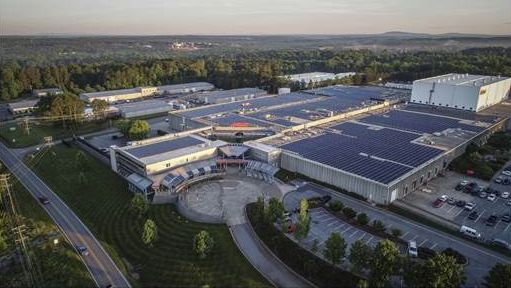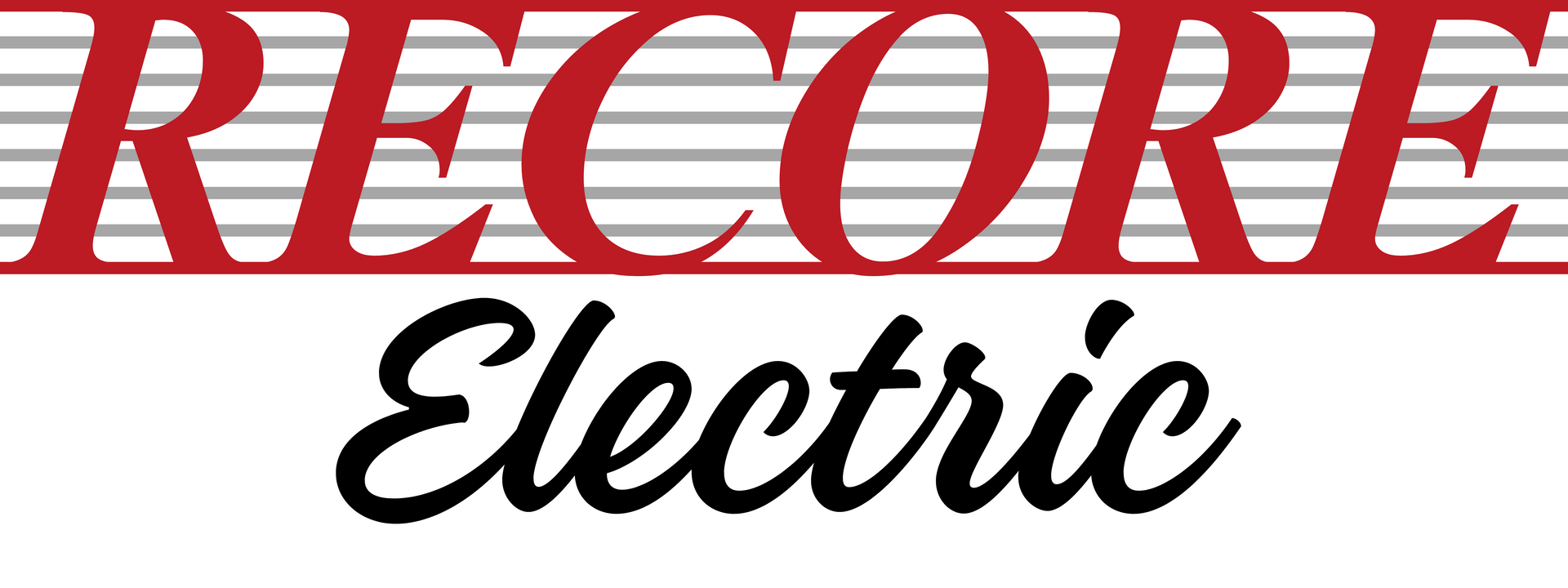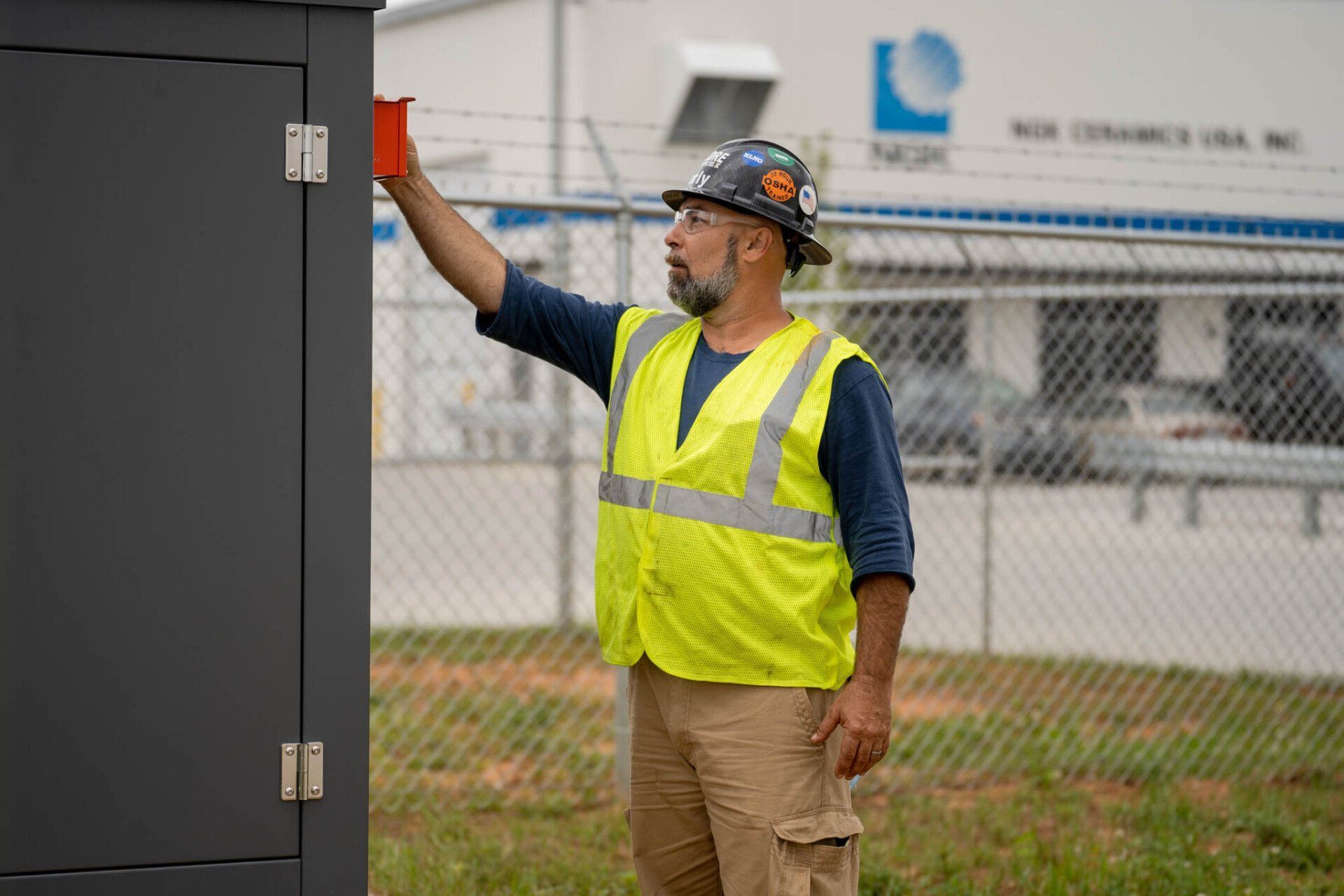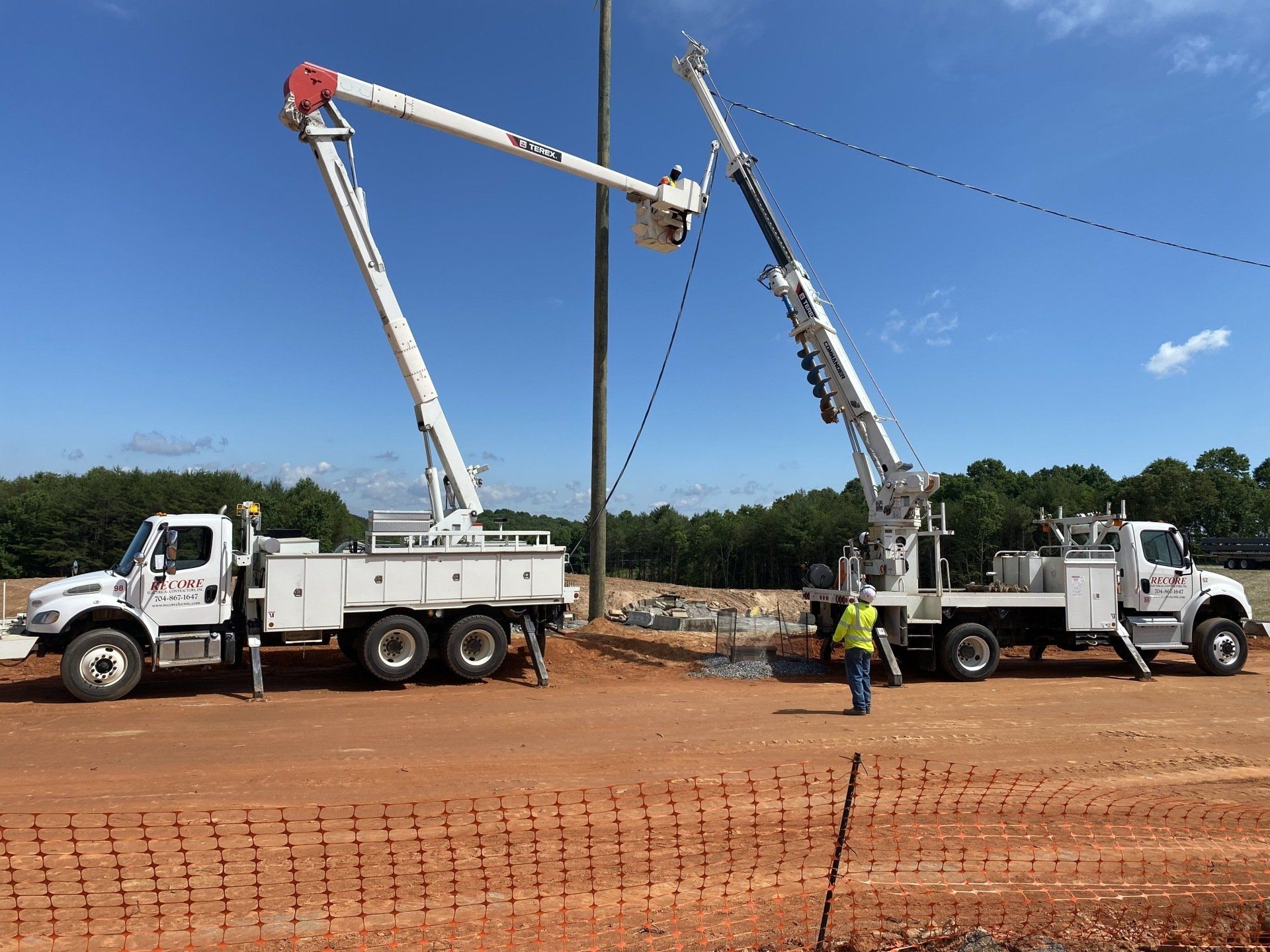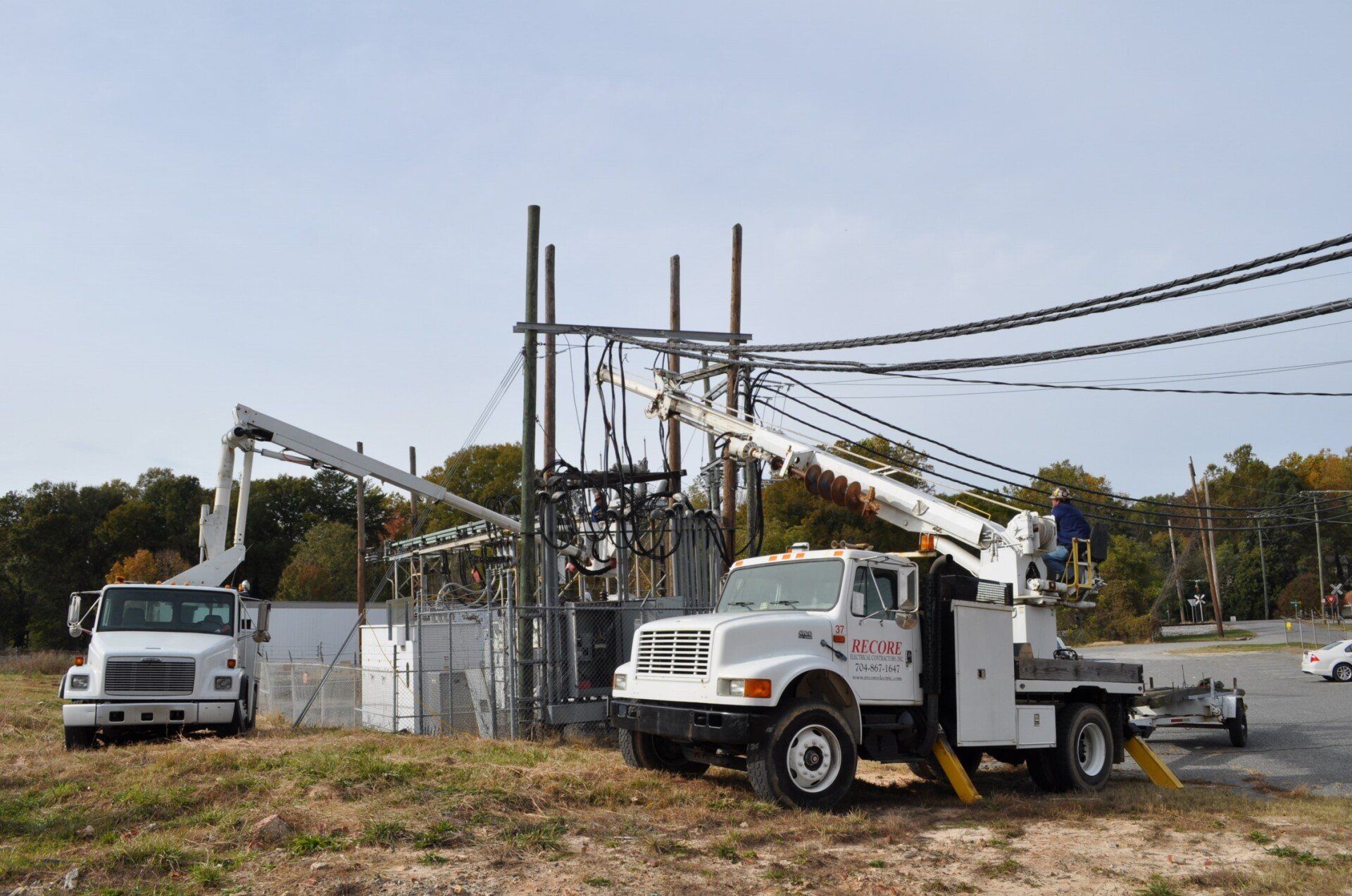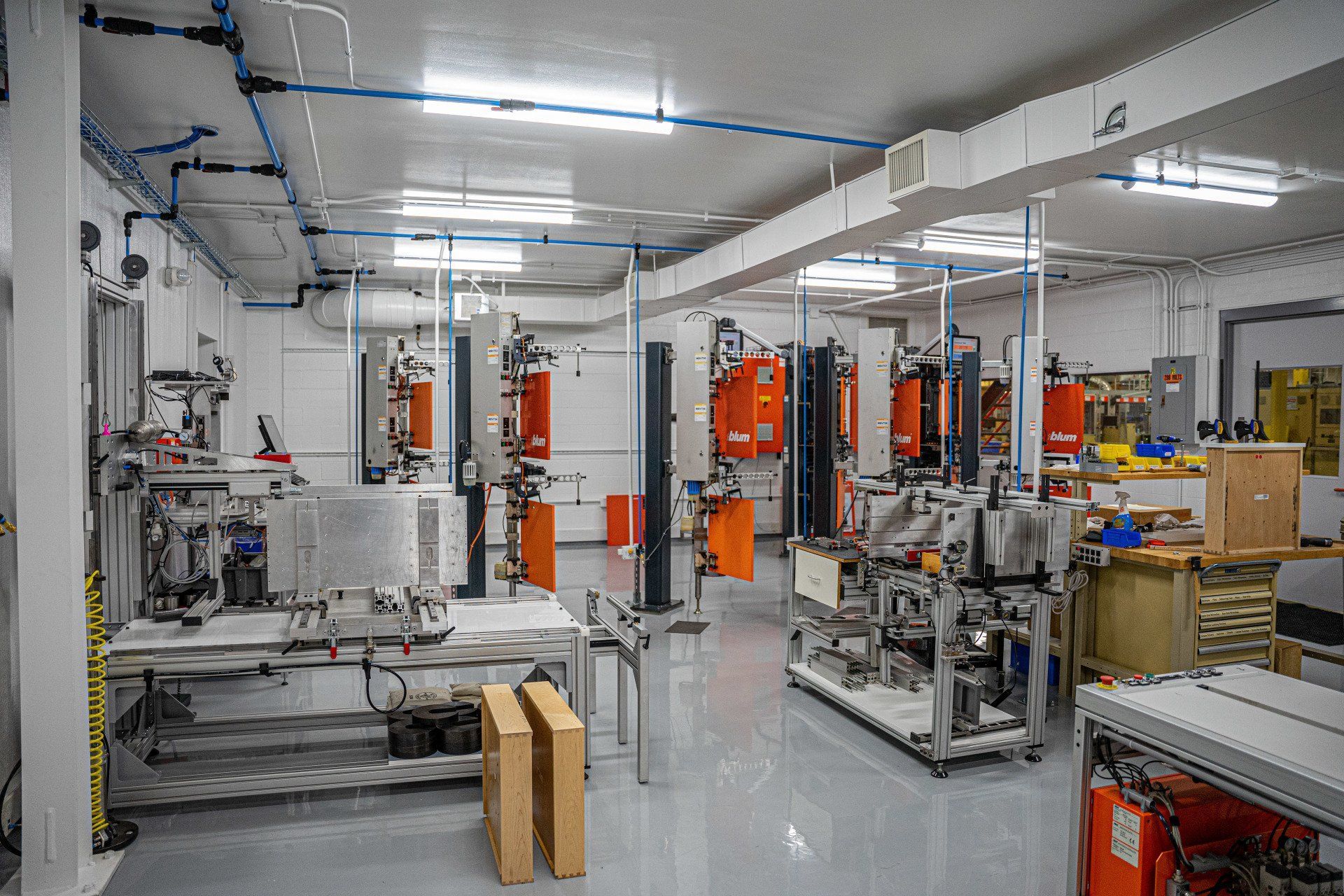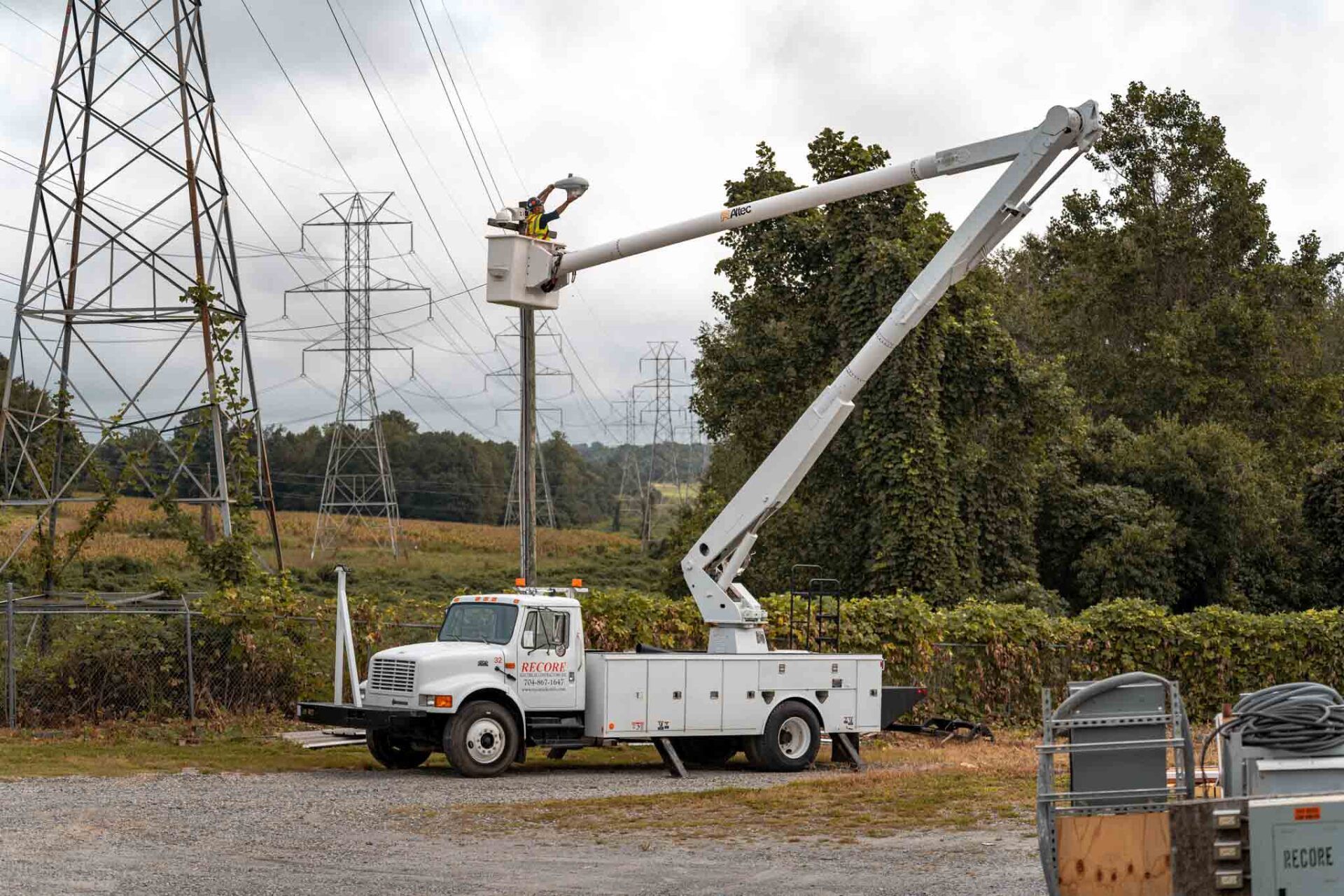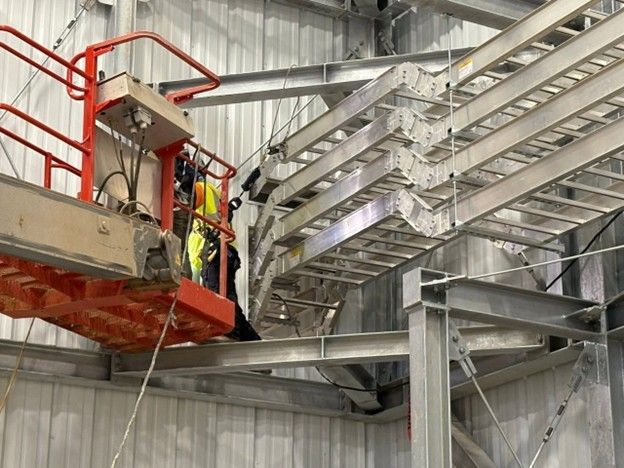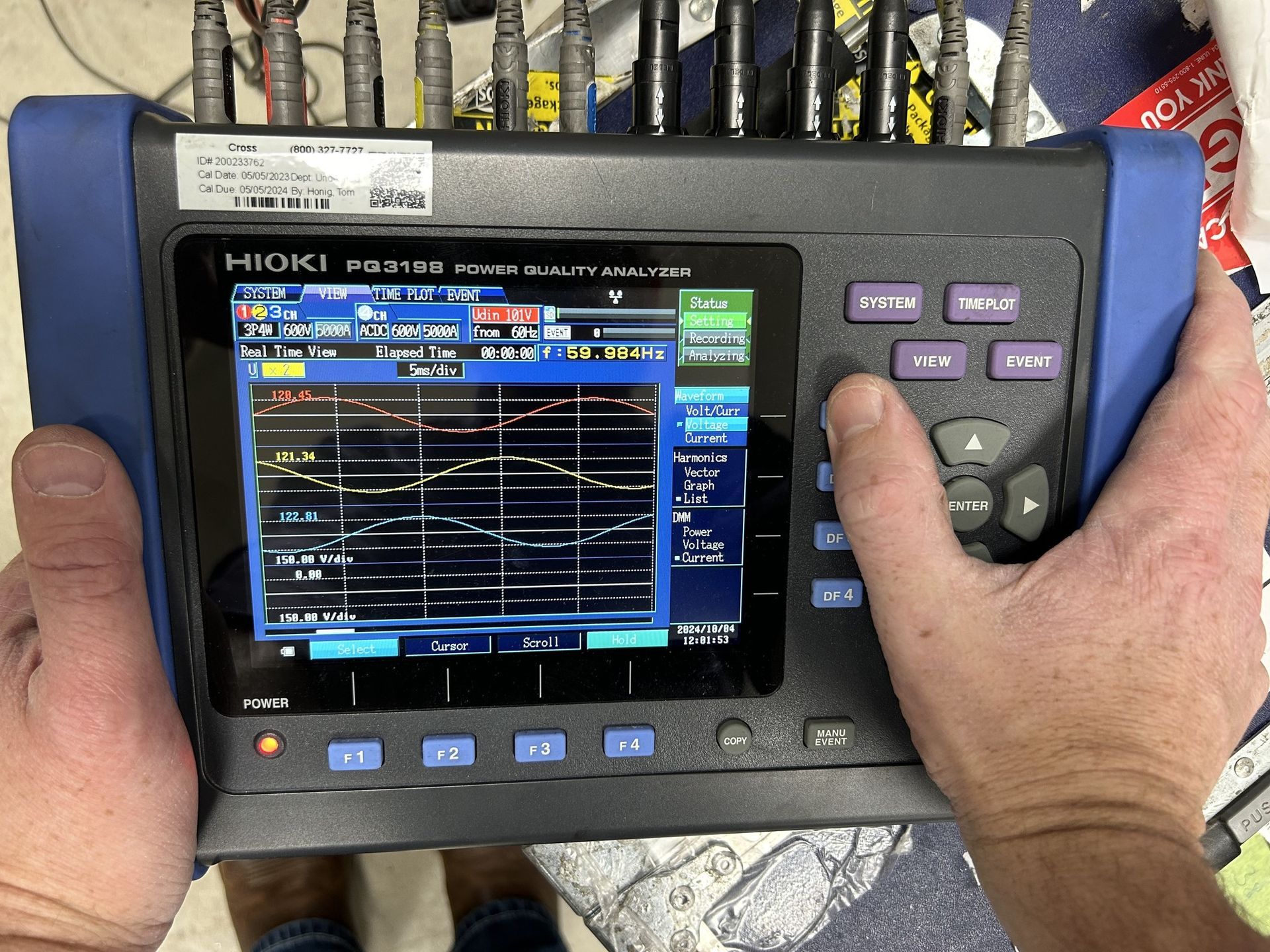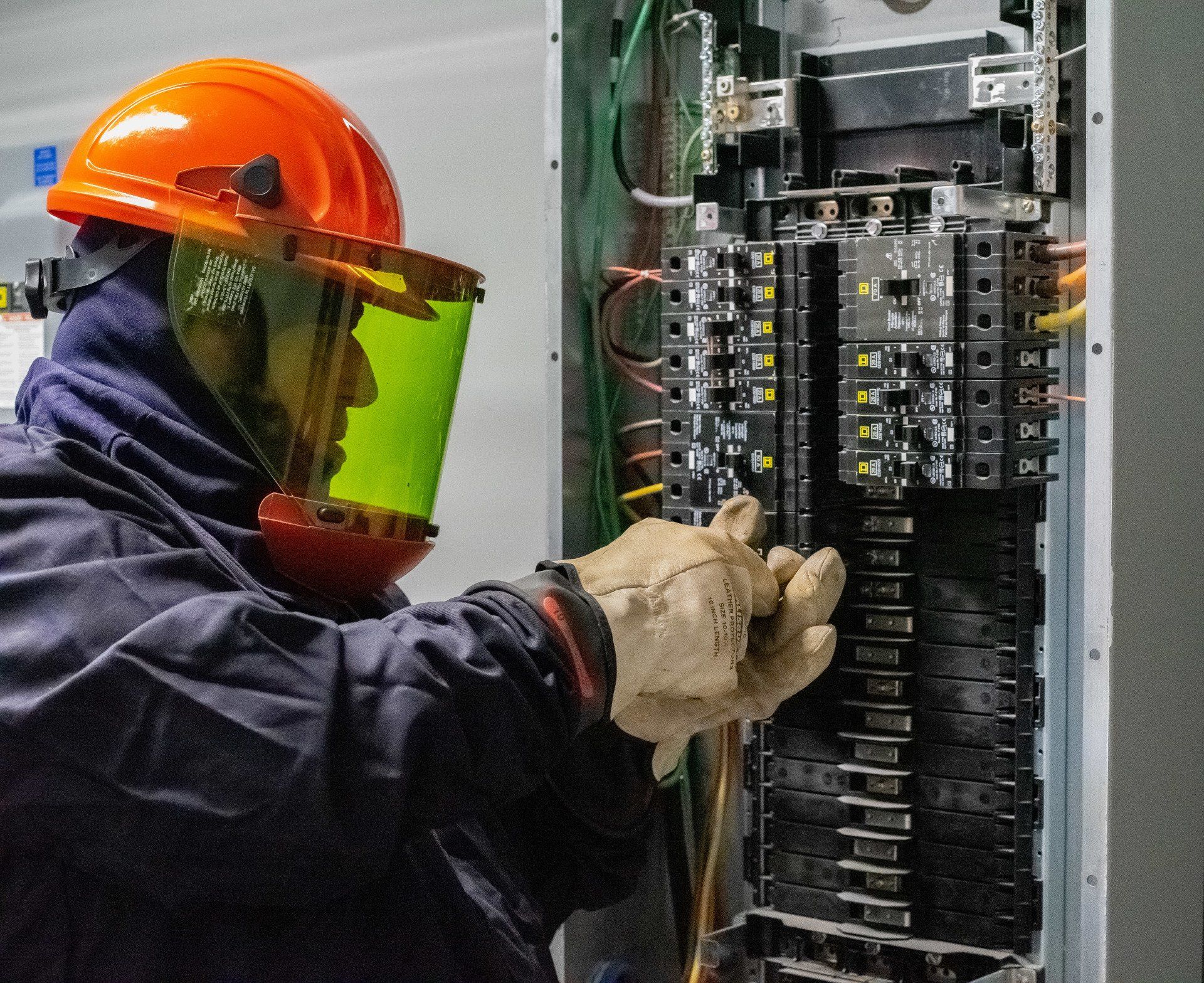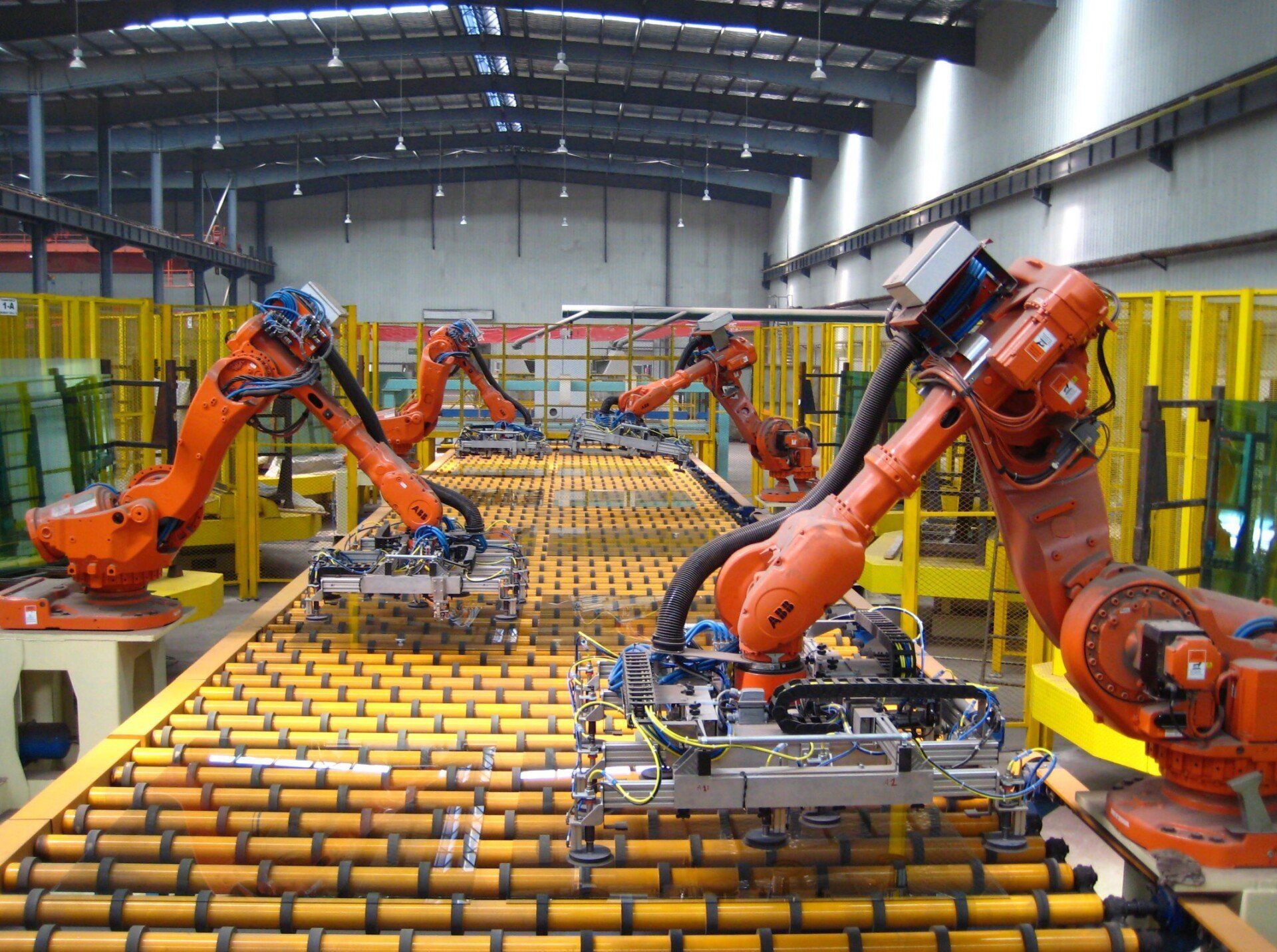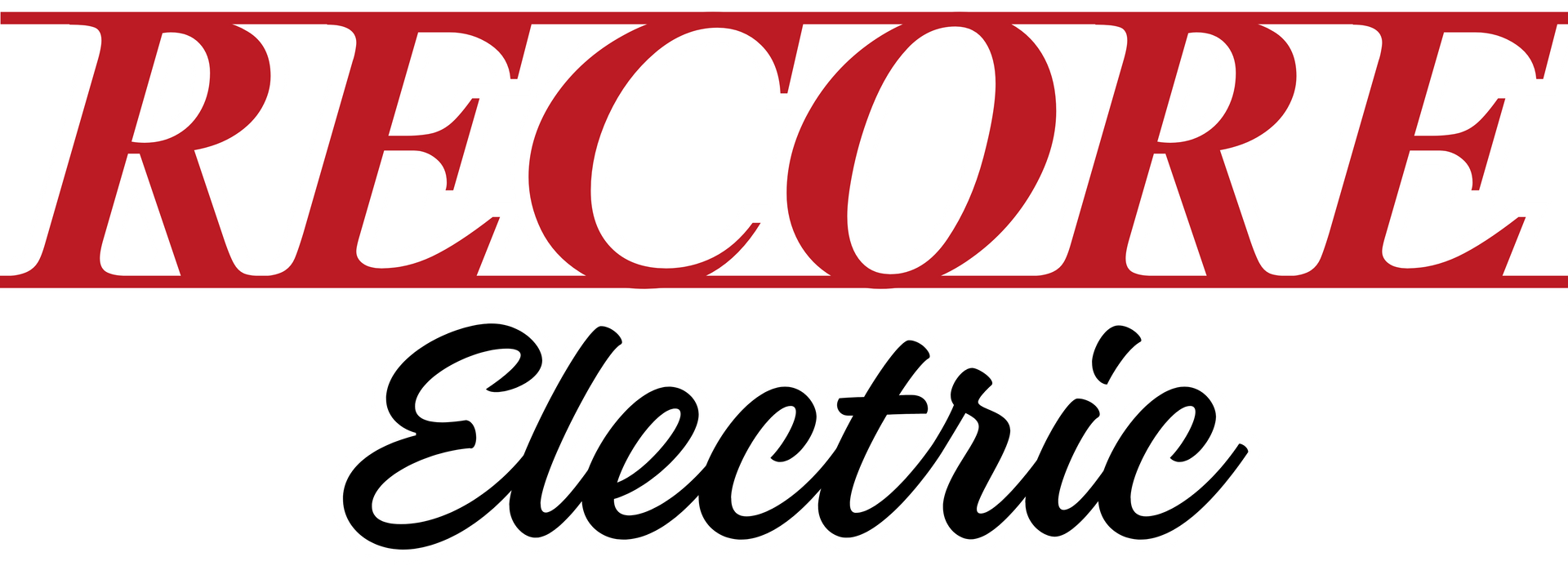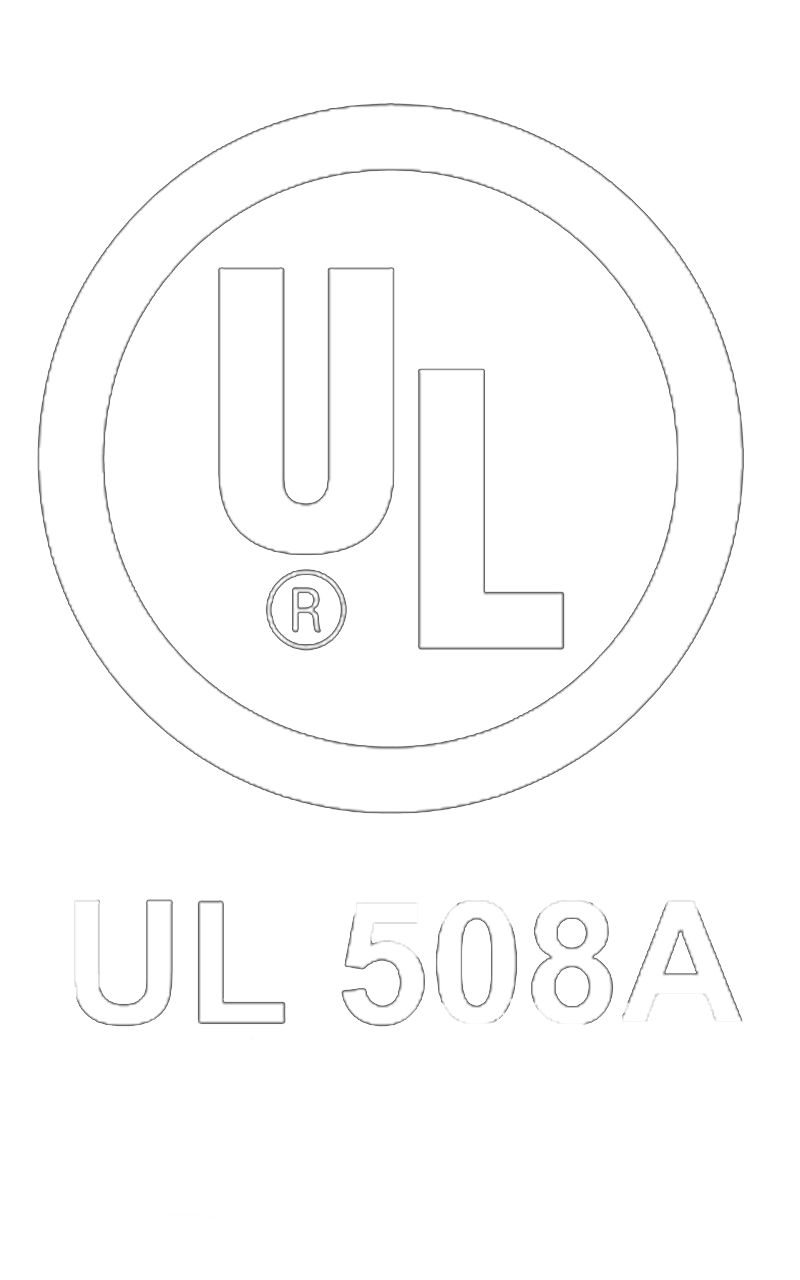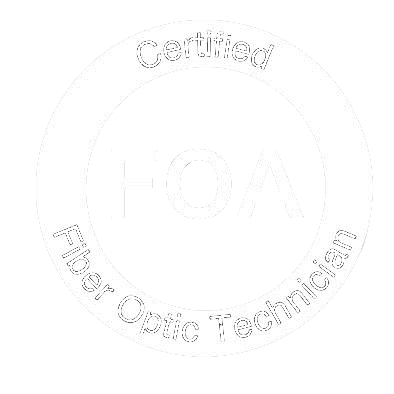Providing Specialized Electrical Needs for Industrial Facilities
Industrial facilities rely on complex and powerful electrical systems that go far beyond what is found in commercial or residential buildings. From high-voltage installations to precision motor controls, the specialized electrical needs of these environments demand both technical expertise and a commitment to safety. At Recore, we bring extensive experience in designing, installing, and maintaining electrical systems that keep industries operating at peak efficiency.
Why Industrial Facilities Require Specialized Electrical Systems
Manufacturing plants, refineries, warehouses, and processing facilities all have unique operational demands. Heavy machinery, round-the-clock production schedules, and stringent safety regulations create environments where electrical infrastructure must be tailored to exact requirements.
Key differences include:
- High power loads: Facilities often operate on high-voltage systems to support large motors and equipment.
- Continuous operation: Electrical systems must be resilient enough to operate without interruption.
- Hazardous conditions: Environments may expose wiring and equipment to dust, chemicals, heat, or vibration.
- Custom configurations: Each facility may require specialized wiring layouts, control systems, and monitoring.
The U.S. Department of Energy (DOE) highlights that industrial plants are among the largest consumers of electricity, meaning that even small inefficiencies or electrical failures can result in significant costs and downtime. This makes specialized electrical expertise not just beneficial, but essential.
High-Voltage Installations
One of the most critical areas of industrial electrical work is high-voltage installations. These systems supply the immense amounts of energy required to power industrial machinery, HVAC systems, and production lines. Designing and installing high-voltage systems involves:
- Proper selection of switchgear, transformers, and distribution panels.
- Protection against arc flash hazards and overload conditions.
- Integration of redundancy to minimize risk of full facility outages.
Recore has extensive experience in high-voltage projects, ensuring that systems meet both production demands and rigorous safety standards. By following guidelines established by the Occupational Safety and Health Administration (OSHA), we reduce the risks associated with high-energy electrical work.
Equipment Wiring and Custom Solutions
Every facility has specialized equipment, and each piece requires correct wiring to function as intended. Improper connections can lead to inefficiencies, malfunctions, or dangerous failures. Our approach to equipment wiring includes:
- Using industry-approved materials and connectors.
- Customizing wiring routes to minimize wear and environmental exposure.
- Coordinating with equipment manufacturers to match specifications.
We also provide tailored solutions when facilities introduce unique or non-standard machinery. Our team designs wiring and controls that integrate seamlessly into the existing electrical infrastructure while maintaining compliance with national codes.
Motor Controls and Automation
Motors are the backbone of industrial operations. From conveyor belts to pumps and fans, reliable motor control is essential. Modern facilities increasingly rely on advanced control systems to optimize performance and reduce energy consumption.
Recore provides installation and maintenance of motor control centers (MCCs), variable frequency drives (VFDs), and programmable logic controllers (PLCs). These technologies allow facility managers to:
- Adjust motor speeds based on real-time demand.
- Reduce electrical surges and energy costs.
- Monitor performance and detect issues before they escalate.
Meeting Safety and Compliance Standards
Safety is non-negotiable in industrial electrical systems. Electrical hazards are among the leading causes of workplace injuries, making compliance with safety regulations a top priority. Recore prioritizes:
- Compliance with OSHA and National Fire Protection Association (NFPA) standards.
- Use of lockout/tagout procedures during maintenance.
- Regular inspections and preventive maintenance to catch potential hazards early.
The National Institute for Occupational Safety and Health (NIOSH) notes that electrical injuries in industrial settings are often preventable through proper design, training, and maintenance practices. By embedding these practices into every project, we protect both people and assets.
Custom Solutions for Unique Facility Requirements
Not all facilities are alike. Some operate in extreme environments where heat, vibration, or chemicals present additional challenges. Others must integrate legacy systems with modern technology. Recore specializes in creating custom electrical solutions that address these needs, such as:
- Designing enclosures and protective barriers for harsh environments.
- Upgrading outdated systems without interrupting operations.
- Integrating renewable energy or backup power into existing infrastructure.
By tailoring solutions to the specific demands of each facility, we deliver reliability and long-term performance.
The Business Impact of Reliable Electrical Systems
Investing in specialized electrical systems has a direct impact on a company’s bottom line. Reliable systems reduce downtime, prevent costly equipment damage, and lower energy consumption. For facilities that operate on thin margins or tight production schedules, even a single outage can result in missed deadlines and lost revenue.
Recore’s experience allows us to identify risks, design efficient systems, and provide ongoing support to maximize productivity. With decades of combined expertise, our team helps facilities stay competitive in demanding markets.
Preventive Maintenance and Long-Term Support
Designing and installing specialized electrical systems is only part of the equation. To maximize performance and safety, these systems need ongoing attention. Preventive maintenance programs help facilities avoid unexpected outages and extend the lifespan of critical equipment.
Recore provides long-term support services that include:
- Scheduled inspections to identify wear, overheating, or loose connections before they cause failures.
- Testing of protective devices such as breakers, fuses, and relays to confirm they function correctly during faults.
- Thermal imaging to detect hot spots and address issues proactively.
- Updating documentation so that facility managers always have accurate records of electrical layouts and modifications.
These improvements have a direct financial impact for industrial facilities that depend on continuous operations. By combining advanced diagnostic tools with practical expertise, Recore offers a comprehensive maintenance approach that keeps electrical systems reliable, safe, and ready to support production.
Why Choose Recore for Industrial Electrical Services
Choosing an electrical contractor is more than hiring someone to pull wire. Industrial facilities need a partner who understands the complexities of high-voltage systems, motor controls, and compliance requirements. Recore stands out because:
- We bring extensive experience across industries, from manufacturing to processing.
- We design and install custom solutions for unique facility requirements.
- We prioritize safety and compliance, protecting both workers and equipment.
- We provide ongoing support, ensuring systems perform reliably over time.
By partnering with Recore, facilities gain more than electrical services. They gain a long-term partner dedicated to supporting their operational success.
Conclusion
Specialized electrical needs for industrial facilities demand more than off-the-shelf solutions. They require expertise, custom design, and a commitment to safety and reliability. From high-voltage installations and motor controls to equipment wiring and tailored solutions, Recore has the knowledge and experience to meet these challenges.
As industries evolve and adopt new technologies, electrical infrastructure must keep pace. Recore is proud to deliver solutions that not only power facilities today but prepare them for the demands of tomorrow.
